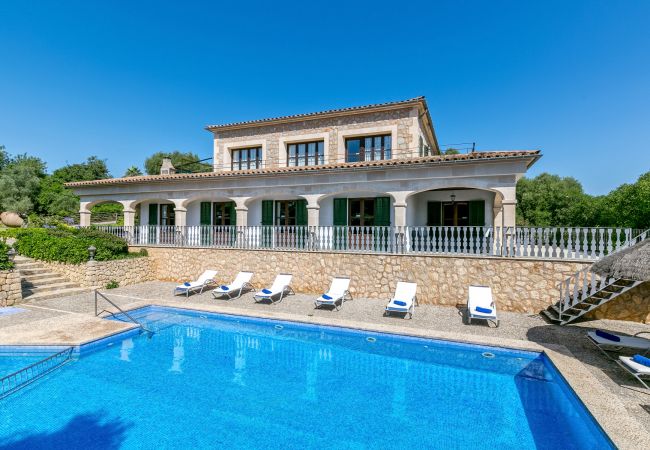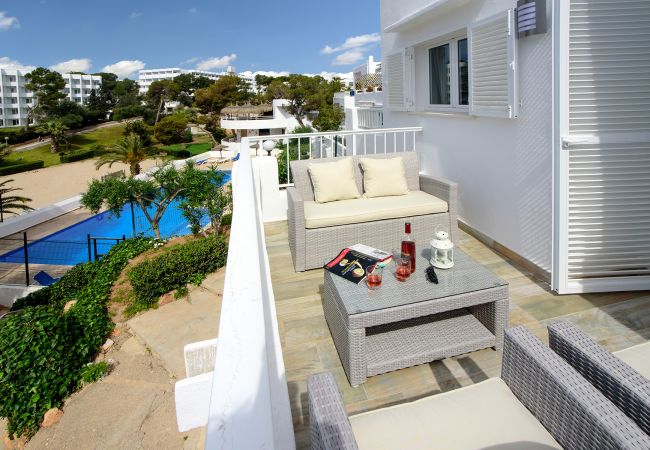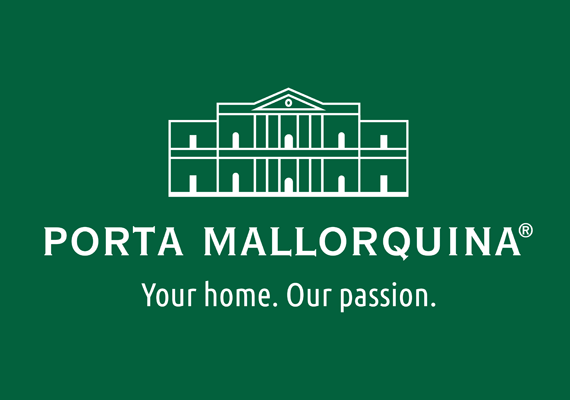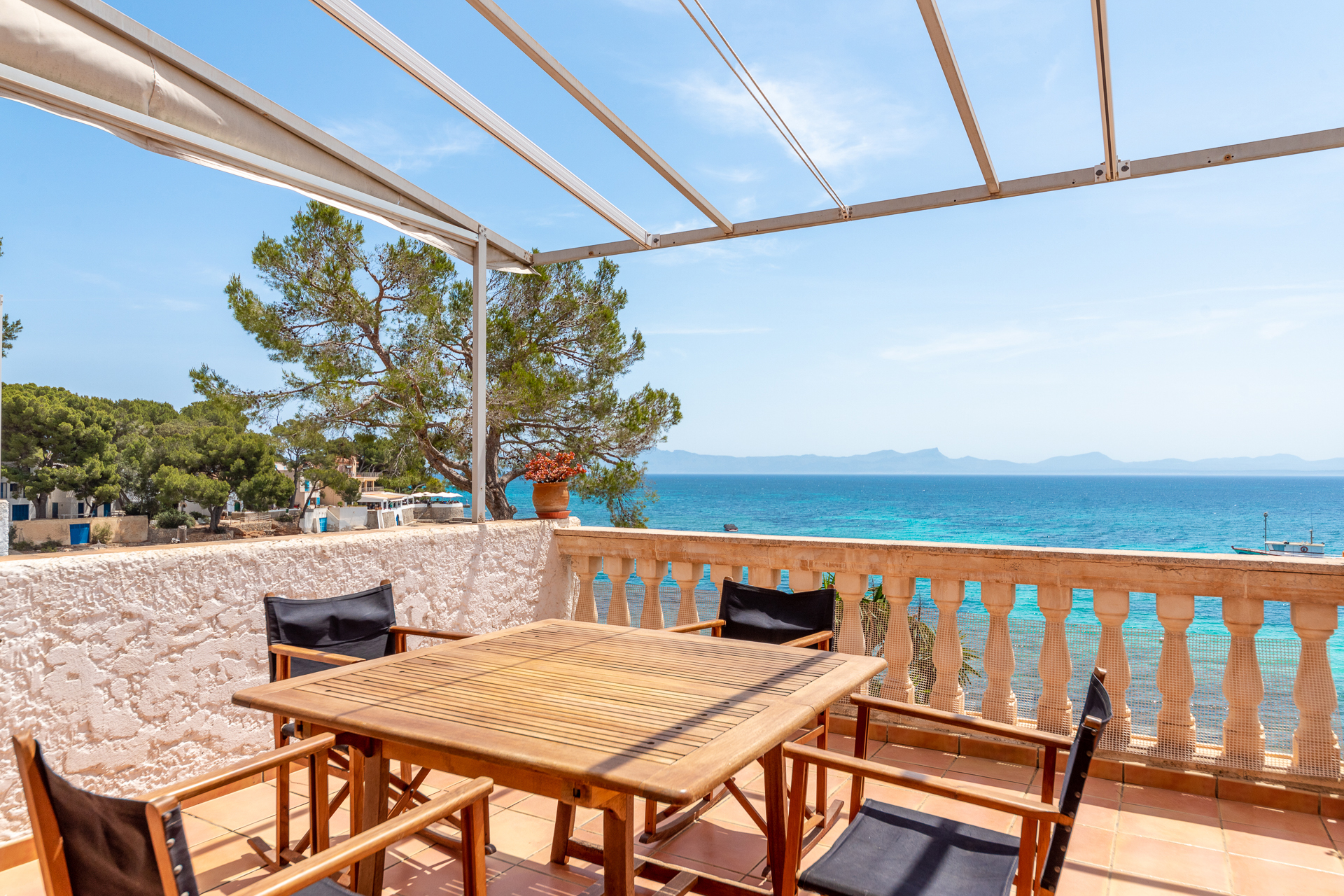Update July 2023: Government pact in the Balearic Islands with new opportunities for holiday rentals on Mallorca
The change of government on the Balearic Islands promises tax relief, and new opportunities for property buyers as well as owners who rent out their property as touristic/holiday rental. The conservative People’s Party (PP) will operate as a minority government and thus will depend on the support of the right-wing populists of Vox. Under Balearic President Marga Prohens, the parties have agreed on a government programme aimed at numerous tax relief factors. One of the planned measures concerns the liberalisation of touristic/holiday rentals. The moratorium that has been in place since 2022 and has blocked the issuing of new licences is to be lifted. We will keep you informed regarding this.
The current law from 2022:
Contents
- No more holiday rental licences to be granted in Mallorca
- Island councils to establish criteria
- 20,000 new overnight accommodation places are on hold
- Licence remains in force in case of sale
- Cancellation of licences is possible
- Returns attracting investors
- No tax changes
- Frequently asked questions
- You own a house with a valid rental licence and would like to rent it out?
- Law Holiday Rentals Mallorca until 2021
No more holiday rental licences to be granted in Mallorca
Those who purchase a property which already has a holiday rental licence can, however, continue with its use.
The brakes have been put on the expansion of the number of holiday rental properties on Mallorca and its neighbouring islands – the Balearic government has frozen the so-called private ‘bed exchange’. At least until 2026, the regional government will no longer issue new licences for holiday rentals, nor can the number of hotel beds be increased. This is according to a supplementary regulation to the Balearic Tourism Law which was passed by emergency decree.
Island councils to establish criteria
During the next four years, the island councils are to calculate conditions and develop plans for the allocation of licences and the number of beds in their own municipalities accordingly. Amongst other things the councils are required to examine the level of the burden of tourism in their respective communities and holiday areas. The intention of the regional government is to reduce the number of beds, and if the island councils fail to react their remaining quotas will expire. In July 2020 Mallorca’s island government capped the number of available guest beds leaving a maximum of 430,000 on the island, 315,000 of them in hotels, with 115,000 in holiday properties.
20,000 new overnight accommodation places are on hold
This year and the coming year around 20,000 places for overnight accommodation could have been created in Mallorca, Ibiza and Formentera. Menorca regulates the allocation through the island’s regional plan, but the moratorium also applies there.
Until now, anyone wishing to engage in holiday renting was obliged to acquire a touristic licence and then to purchase the corresponding number of guest places from the bed exchange. That is no longer possible, as the authorities are no longer accepting new applications. Only applications for rental licences submitted before and up to the date of publication of the decision in the Balearic Government Official journal on 11 February, 2022 will be processed.
Licence remains in force in case of sale
Furthermore, it is no longer possible for owners to exchange or sell already existing bed spaces amongst themselves. It is, however, important to know that: If a property with an existing holiday rental licence is sold, the new owner may continue to use it but the number of beds offered may not be changed.
Cancellation of licences is possible
If a licences is returned then it will no longer be available to the market. A licence is returned at the owner’s request, but in addition owners can have their licences removed. This can happen if they fail to comply with the law. For example, licences issued for multi-occupancy buildings and 60-day rentals must be renewed every five years, and the fees for the bed spaces must then be paid again. Those who applied for their rental licence under older regulations (before 2017) must also apply to retain the licence on a regular basis.
A non-use period of three years applies to letting licences issued before 2017. If it is found that the property has not been rented out to holidaymakers during this period, the licence automatically expires. Staff of the Mallorca Island Council will check and ascertain whether properties with letting licences have been made available for tourist purposes or not during this period.
Returns attracting investors
Touristic holiday rentals have become established on Mallorca and the other Balearic Islands in recent years as an alternative to hotel accommodation, and during the Corona pandemic this experienced an absolute boom. The excellent returns attracted many foreign investors. Anyone who now purchases a property on Mallorca that already has an existing valid holiday rental licence will still be able to use it. Anyone who buys a house without a licence, however, currently has no possibility of legalising touristic rentals.
No tax changes
For tax non-residents the income tax on holiday rentals remains the same, as this is regulated by the Spanish income tax act. Owners of touristic accommodation are obliged, therefore, to continue to file their income tax returns in Spain on a quarterly basis.
Frequently asked questions
Update: August 2022 – Author: Dominic Porta
What is the procedure regarding the renewal of old licences?
In the area of holiday rentals in Mallorca the term “old licences” refers to touristic rental licences which were approved and issued before July 2017. A further distinction is then made between licences issued in the periods 2005-2012 and 2012-2017.
What about the renewal of old licences according to the 2005 requirements?
Article 12 of Ley 2/2005 states that licences have a maximum validity of six years and that they must be renewed two months before the expiry of these six years. The introduction of Law 8/2012 of 19 July did NOT repeal this provision therefore it remains in force. This means that licences obtained between 2005 and 2012 must be renewed every six years or they will become invalid. There is a charge for the renewal.
What is the situation regarding the renewal of old licences under the 2012 requirements?
In the laws and regulations on holiday rentals which were in force in the period from 2012 to 2017 there is no regulation regarding the period of validity of holiday rental licences in Mallorca. There is also no interim regulation referring to this in the Tourism Laws of the Balearic islands (Law 8/2012 of 19 July). This means that those licences do not have an expiry date and therefore do not have to be renewed. The tourism authorities have confirmed this (by telephone).
Is a rental of 30 days or more still classed as a holiday rental?
According to the Balearic Islands Tourism Law (as amended on 18 June 2022), rentals are classed as ‘holiday rentals’ when a residential property is offered for rental for a short period of time with the intention of making a profit. The existing regulations still contained the rule that a rental of less than 30 days was considered to be a holiday rental, and this was understood to mean that a letting of 30 days or more was, therefore, a long-term letting. This presumed rule, however, no longer exists in this form and instead it is now clearly defined that a holiday property may be rented out by the day or week, but in no case may the rental period exceed one month. The presumed meaning of the rule was reformulated and now, according to the current legal situation, a rental is considered a holiday rental if the marketing is for short-term letting only (i.e. by the day or week), and it is clear that the marketing serves no other purpose other than tourism. In plain language this means that it is now no longer the duration of the rental period which matters, but rather the marketing character, ie. tourist or non-tourist. This means, therefore, that anyone not wishing to practise holiday renting may not let the holiday property for a longer period than one month. Those who do not want to engage in holiday rentals and therefore let for longer than one month must, however, prove that it is not a touristic letting.
Please feel free to send your requests for advice on the tax aspects directly to our partners, the Plattes Group, or to the lawyer Dominic Porta who has specialised in what has now become the very complex legal topic of holiday rentals: www.anwaltmallorca.eu.
You own a house with a valid rental licence and would like to rent it out?
Porta Holiday is your reputable and serious partner for the reliable holiday rental of your property in Mallorca and the Balearic Islands. More info and contact here.
Law Holiday Rentals Mallorca until 2021
Those wishing to rent out their property to tourists should first make sure that all requirements are met.
It was more or less a year ago when it all happened: The Balearic government passed a moratorium concerning holiday rental and for one year no further permits for holiday renting were to be issued – the numbers of tourists was rising too quickly, was given as the reason.
After a tough struggle there is now a political agreement and since the 30th July 2018 licenses can once again be applied for. The island government plans at first to allocate 20.000 beds for holiday guests, and in total this should become 30.000 with the rest following within the next two years (apart from this there will be 10.000 new tourist places allocated to hotels).

For owners in possesion of a licence nothing changes as protection of acquired rights applies.
Two Spanish local media, Ultima Hora and Diario Mallorca, reported extensively on the development of the law and its consequences. We have summarized the most important points for you:
Who is allowed to rent?
According to the law a new property will not be licensed during the first 5 years (after completion) but this does not depend on the duration of the ownership by the individual owner.
If a property is in the right area and older than 5 years, the buyer can apply for a license immediately. But still he must meet the very strict requirements of the provincial government and purchase each guest bed.
The good news for those already in possession of a licence is that nothing will change as this falls under the protection of acquired rights. The objects offered for rent are limited to three per owner.
What may be rented?
Detached houses, but also holiday apartments in residential buildings provided that the other owners agree and that the properties are located in one of the approved zones. No new country hotels or golf course projects will be approved by the island council.
What does the property need to offer?
The object to be rented needs a certificate of habitability (‘cédula de habitabilidad’) and an energy certificate (‘certificado energetico’) must be available. Social housing is categorically excluded. Another prerequisite is that for every four guest-beds there must be a bathroom, and in the case of a holiday apartment in a residential building the apartment must have its own electricity and water meter.
In areas in which holiday rentals are restricted the property must be the main residence of the owner. All these regulations, however, only apply to those objects which have not yet been issued with an official licence to rent.
In which locations can properties be rented out?
The zone plan referred to as PIAT is the central point of the framework of the touristic rental law: It distinctly differentiates between areas which are touristically at full capacity and those which could still tolerate guests where during the whole year rentals to holidaymakers are allowed. There are some areas where rentals are completely prohibited, for example holiday homes on the Playa de Palma or, more precisely, from Es Carnatge (Can Pastilla) as far as the border with Llucmajor in Arenal. The same applies to countryside protected areas and industrial and commercial areas.
Then there are various places considered to be ‘sensitive’ – these include around 31 places, for example certain sections of Deià, Pollença, Sóller, Ses Salines and also in general rural areas where renting is restricted. In sensitive and ‘saturated’ areas there is a 60-day rule which restricts the renting of certain objects to a maximum of 2 months per year. This is, for example, the coastlines close to Palma such as south-west Palmanova, Magaluf, Santa Ponça and Peguera and south-east Arenal, Cala Blava and Son Verí Nou.
The town of Palma is excluded from the zoning plan and the town council has made its own rules. The rule is that the rental of apartments in residential buildings is forbidden but allowed with detached houses. The zoning plan with its different, colour-coded zones and the corresponding breakdown can be found at Majorca Daily Bulletin.
The procedure is still very complicated. The holiday home must be situated in a zone where rental is possible according to the zoning plan. First a corresponding certificate must be applied for with the municipality responsible.
Should the object be an apartment in a residential complex/building an owners’ meeting must be held and must approve the rental.
Now a licence must be applied for at the tourist ministery of the Balearic government (Conselleria de Innovación, Investigación y Turismo). If this is approved a registration number is issued for the object in question. Now, the individual tourist places (guest beds) must be purchased and last but not least, a ‘DRIAT’ (declaration to start a tourist activity’) must be submitted to the Ministry of Tourism.
Only then it is possible to proceed. In order to check that all is taking its course there will be an app in the future which can be controlled by the tourist himself. With the ‘holiday rental check Mallorca’ the tourist can check via the registration number whether the rental is actually approved. Without a doubt the authorities will exercise more control.
What will it cost?
Anyone who has managed to acquire a registration number for a property must pay for each guest bed individually. One bed in a detached house costs 3.500 euros, and a bed in a holiday apartment 875 euros. In the case of the 60-day regulation a tourist place costs 291.67 euros. Payment in instalments is possible. The final question is:
What happens to the licence when I sell?
The licences have differing lengths of validity – new licences for holiday homes are permanent and can, therefore, be sold together with the property. With holiday apartments, however, which have received their first licence, these are valid for 5 years after which time they are cancelled. Since, however, the Balearic government intends to reduce the total number of holiday places in the mid-term, expired licences should not be reassigned. Currently, the total number of guest beds is limited to 430.000 in Mallorca, of which 115.000 are for holiday rentals and the remainder (315.000) for hotels.

The first license for holiday apartments is valid for 5 years.
(Sources: Mallorca Zeitung und Mallorca Magazin)

